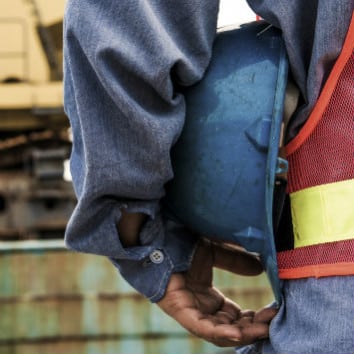When you suffer a maritime or offshore injury in Maryland, it’s normal to have several questions:
We can help you learn more about what to expect after a maritime injury.
In Maryland, the Port of Baltimore dominates the state’s maritime cargo industry. This port is a major contributor to the state’s economy and provides tens of thousands of jobs throughout the state. There are over 13 thousand jobs directly involved with cargo and vessel activities in the state, and these jobs create over 20 thousand indirect and induced jobs throughout the state which rely on port operations.
Port employees make an average of 16% more than other Maryland workers. While this work may be financially rewarding, it’s also physically demanding and potentially dangerous.
Maritime and offshore worker injuries are common in Maryland. While some may be due to unavoidable circumstances, others are caused by negligence. Fortunately, there are forms of financial compensation available when an injury happens. However, recovering the compensation you deserve can be complicated. You may be eligible for a number of benefits that you may not be aware of. Indeed, after a maritime injury in Maryland, you likely have the ability to file a Jones Act claim or Longshore and Harbor Workers’ Compensation Act (LHWCA) claim.
Yet, getting the maximum benefits you deserve doesn't just come down to filing the claims. Insurance providers will employ numerous tactics to get injured maritime workers to settle for less than they deserve. With an experienced maritime accident attorney representing your interests, you can be sure that all avenues for compensation will be pursued.


Maritime workers generally fall into one of two groups; those who spend a significant portion of time directly contributing to the function of a vessel on navigable waters, and those who primarily work on-shore as longshore, dock, and harbor workers. These two groups are covered by two different laws in the event of a work-related injury:
The first group is covered under the Jones Act. This system provides maintenance and cure benefits for any work-related injury, regardless of how the injury occurred. Maintenance provides compensation for necessary living expenses like rent/mortgages, bills, and food while cure covers medical expenses until the injury reaches maximum recovery.
Workers covered under the Jones Act may seek additional financial compensation if some form of negligence played a role in their injury. For example, if your employer failed to properly train your co-workers in safety procedures and you were injured as a result, you can sue your employer for damages similar to what you’d recover in a personal injury lawsuit. However, maritime injury cases are a specialized field of law and usually require the assistance of a lawyer with experience in these matters.
If your vessel contained a dangerous or defective condition, or any other condition which compromises the safety of the vessel, you could also hold the vessel owner liable under the concept of unseaworthiness.
Longshore, dock, and harbor workers are not eligible to file Jones Act claims, but may instead seek compensation in a LHWCA claim. These provide similar benefits as a state-level workers’ comp claim, including coverage for lost wages, medical expenses, vocational rehabilitative services, and death benefits. However, the claims process occurs at the federal level and involves the complex field of maritime law, making it much different than the workers’ comp claims process.
Because maritime injuries involve the complex and specialized field of maritime law, it’s usually necessary to get assistance from a lawyer who specializes in this field. This is especially important for Jones Act claims, in which you must prove that your employer was negligent and that this negligence directly contributed to your injury.
If you represent yourself, you’ll be forced to contend with your employer, their insurance carrier, and their team of skilled lawyers in court. With the assistance of a maritime injury lawyer, you can ensure you recover full compensation. In many cases, injured maritime workers receive settlements with little to no court appearances necessary.
Contact one of our experienced maritime lawyers today to find out more about your right to compensation after a maritime injury in Maryland. We can help you understand your options and guide you through each aspect of the claims process, so that you can get the maximum compensation you’re entitled to.
Continue Reading: Recovering Financial Compensation After A Connecticut Offshore Injury

 info@legalherald.com
info@legalherald.com